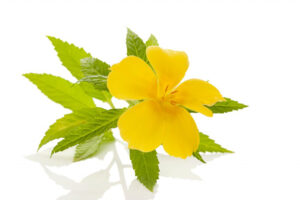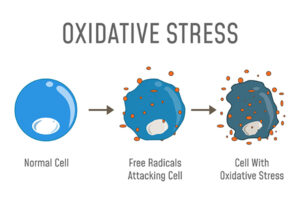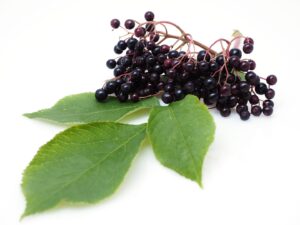
Improving Libido and Male Function, Naturally
‘Issues with male function’ denotes a variety of problems, including those related to impotence and lack of desire. Statistical data
Tribulus Terrestris, otherwise known as puncture vine, is a small leafy plant that grows in many parts of the world, including Europe, Asia, Africa and the Middle east.
Although traditional herbal medicine uses the roots, leaves and fruit of the Tribulus Terrestris for various health purposes, its main function is as a plant that supports fertility, as an aphrodisiac plant (a plant that enhances libido), and to improve male function.
Traditional Indian medicine (specifically Ayurveda), uses the puncture vine to improve fertility and male function, to treat uterine problems in women, and to treat urinary tract issues, kidney stones, gout and more.
In recent years, in part due to research studies conducted in Bulgaria on the effectiveness of Tribulus Terrestris, this plant has become popular as treatment to support fertility problems, to enhance libido. to relieve menopause symptoms in women, to improve a person’s sense of vitality, and to help deal with stressful situations.
What are the active components of Tribulus Terrestris?
Tribulus Terrestris contains a group of active components called ‘steroidal saponins’. Within these components, ‘Protodioscine’ was identified as the main ingredient to which the main benefits of the plant are attributed.
What are the main effects of the Tribulus Terrestris?
Research indicates that the main component ‘Protodioscine’ is converted to the hormone DHEA in the body, which affects the libido in men and women.
Research has shown that Tribulus Terrestris promotes the production of nitrite-oxide within the body. Nitrite-oxide, a naturally occurring molecule causes the dilation of even the smallest blood vessels, thereby improving blood flow and positively affecting male function.
[Click here [1] to review the studies on Tribulus Terrestris and its effect on male function]
While research evidence regarding the effect of Tribulus Terrestris on Testosterone levels shows an increase in animal research models, clinical studies in humans indicate different, and sometimes contradictory, results.
There are studies that indicate an increase in Testosterone levels in the blood among males suffering from infertility, athletic athletes, and among older men who previously suffered from issues with male function and low Testosterone in the blood.
Yet, more studies are needed to determine the exact effect of Tribulus Terrestis on male Testosterone levels.
Tribulus Terrestis has been shown to increase libido, thereby enhancing marital desire and satisfaction.
The results of this study showed an improvement in fertility when the drug was taken at that same time as Tribulus Terrestris extract, as compared to taking the drug without Tribulus Terrestris extract.
Tribulus Terrestris: Safety:
Tribulus Terrestris extract is considered a safe plant to take, in acceptable doses.
Tribulus Terrestris may interact with certain medications:
Always consult with your health practitioner before starting any dietary supplement regimen.
Tribulus Terrestris is NOT recommended in the following situations:
Disclaimer: Medicinal plants are not drugs. The purpose of this article is to provide a general overview of approaches in complementary medicine and the information provided does not constitute a qualified medical recommendation. This article is not intended to diagnose or treat any disease and is not a substitute for medical advice or treatment. Always contact your health practitioner before starting any nutritional supplement programs.
[1] Samani NB et al, J Evid Based Comp Alt Med 2016; (21(4):91-7
[1] Murthy AR, Dubey SD, Tripathi K. Anti-hypertensive effect of Gokshura (Tribulus Terrestris Linn.) – A clinical study. Anc Sci Life. 2000;19(3-4):139-145.

‘Issues with male function’ denotes a variety of problems, including those related to impotence and lack of desire. Statistical data

The effect of oxidative stress on male fertility and sperm quality indicators.
Fertility problems are very common, affecting approximately 1 in 6 couples.

In recent decades, women throughout the world have turned to traditional medicine to balance hormonal function and to treat common
Sign up for our fertility guidance campaign.
Get information, tips, and advice regarding fertility and relationships via email.

כשרות
Vida’s dietary supplements are not medicine. They are not intended to diagnose, treat, cure or prevent any disease. In case of a medical concern, please consult your attending physician.
Vida products are manufactured in a factory that meets the requirements of the GMP for proper manufacturing conditions. The information provided about them has not been evaluated by the GMP.
The information provided on this website is for informational purposes only and is not intended as a substitute for advice from your physician or other health care professional. You should not use the information on this site to diagnose or treat any health problem or condition. Always consult with a healthcare professional before starting any diet, exercise or nutritional supplement program, before taking any medication, or if you suspect you might have a health problem.
Always read the information included with your product for the most up-to-date nutritional information.
FDA Disclaimer: These statements have not been evaluated by the Food and Drug Administration. This product is not intended to diagnose, treat, cure or prevent any disease.
designed by b-splash.com | powered by c-site.co.il
Get information, tips, and advice regarding fertility and relationships.